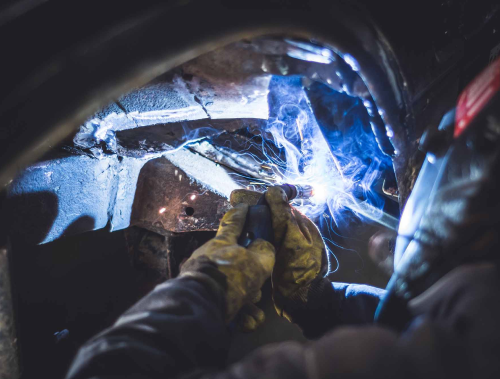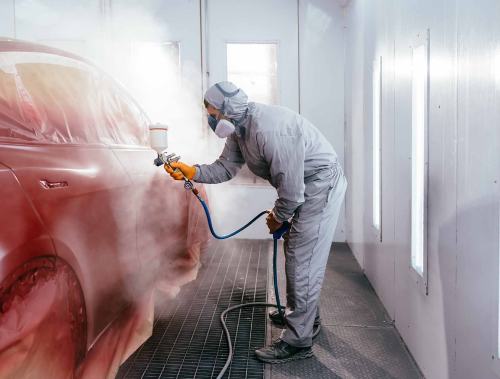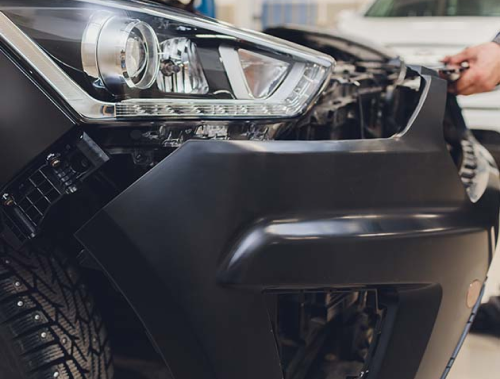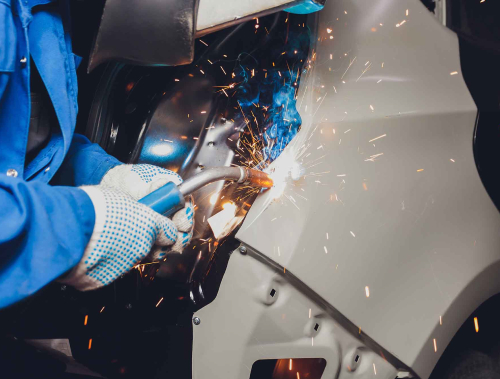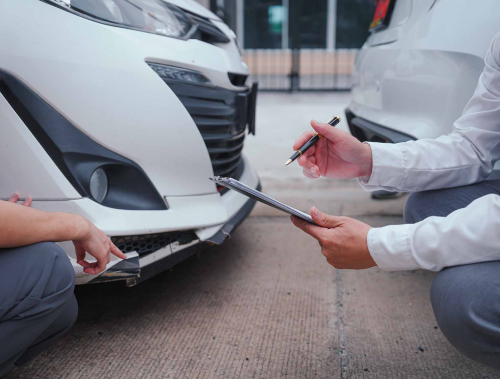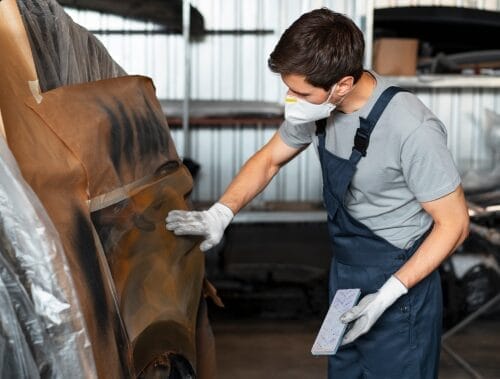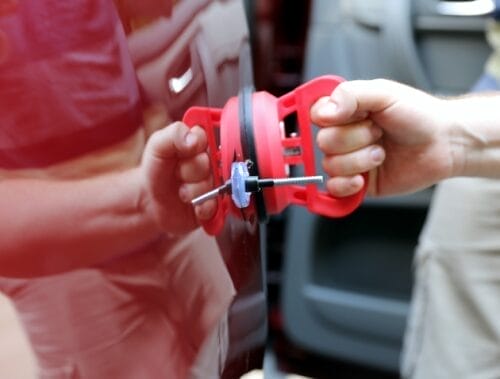Accidents happen in an instant, and the moments following can be overwhelming. However, taking immediate and thoughtful action is crucial. Whether it’s a minor fender-bender or a more serious collision, knowing what steps to take can protect your safety, preserve your legal rights, and ensure that everything is documented properly. This guide will walk you through the essential actions to take right after an accident, helping you stay calm and focused during a stressful time.
Ensure Safety First
The first and most important consideration after an accident is ensuring the safety of everyone involved. This means assessing injuries and preventing further harm.
Check for Injuries
Immediately after the accident, the first step is to check yourself and others involved for injuries. Even if the impact seemed minor, adrenaline can mask pain, so take a moment to assess how you feel. If you can, ask the others if they are okay.
- Self-Assessment: Start by checking yourself for any visible injuries. Look for cuts, bruises, or any signs of pain. If you’re feeling dizzy, disoriented, or if you notice any numbness, it’s crucial to seek medical attention immediately.
- Assess Others: If you’re not severely injured and it’s safe, check on the passengers in your vehicle and any other people involved in the accident. Ask them if they’re hurt or need help.
If anyone is injured, especially if they are unconscious or unable to move, it’s critical to call for emergency medical assistance right away.
Prevent Further Accidents
Once you’ve assessed injuries, the next step is to prevent further accidents. The scene of an accident can be dangerous, especially on busy roads, so taking precautions is essential.
- Hazard Lights: Turn on your vehicle’s hazard lights to alert other drivers that there’s been an accident. This can help prevent further collisions, especially if visibility is poor.
- Warning Triangles or Flares: If you have them, place warning triangles or flares at a safe distance behind your vehicle to provide additional warning to oncoming traffic.
- Stay in Your Vehicle: If the accident occurs on a busy road, it’s often safer to stay inside your vehicle until help arrives. Leaving your vehicle can put you at risk of being struck by passing cars, especially in poor visibility conditions.
If it’s safe and your vehicle is causing a hazard by being in traffic, move it to the side of the road. However, do not leave the scene of the accident, as this could have legal repercussions.
Contact Authorities
Once you’ve ensured that everyone is safe and that no further accidents will occur, it’s time to contact the authorities. This step is vital for both safety and legal reasons.
Call the Police
No matter how minor the accident may seem, calling the police is an important step. A police report serves as an official record of the accident, which can be invaluable if there are any disputes later on.
- Importance of a Police Report: A police report can help document the facts of the accident, including who was involved, what happened, and any contributing factors like road conditions or traffic violations. This report can be crucial when filing insurance claims or if legal action is necessary.
- Information to Provide: When the police arrive, provide them with a clear and honest account of what happened. They will need to know the time and location of the accident, the names and contact details of everyone involved, and any other relevant information, such as whether you believe anyone involved was under the influence of drugs or alcohol.
- What to Ask For: Make sure to ask the responding officer for their name, badge number, and a copy of the police report, or at least the report number. This will make it easier to obtain the full report later if needed.
When to Involve Emergency Services
In some situations, you may need to call for additional emergency services beyond the police, such as an ambulance or the fire department.
- When to Call an Ambulance: If anyone is injured, especially if the injuries are serious or life-threatening, call for an ambulance immediately. Even if injuries seem minor, it’s better to be cautious, as some conditions, like concussions or internal injuries, may not be immediately apparent.
- When to Call the Fire Department: If the accident has resulted in a fire, a fuel leak, or if someone is trapped in a vehicle, you should contact the fire department. They have the equipment and expertise to handle these dangerous situations safely.
Having emergency services on-site ensures that any injuries are treated promptly and that the accident scene is managed safely.
Document the Accident Scene
Documenting the accident scene thoroughly is crucial for both insurance purposes and any potential legal proceedings. The more detailed your documentation, the better protected you’ll be.
Gather Information
Collecting accurate information from everyone involved in the accident is one of the first steps in documenting the scene.
- Details from Other Parties: Obtain the names, contact information, and insurance details of all drivers involved in the accident. If there are any witnesses, get their contact information as well. This could be useful if there’s a need to verify details later.
- Vehicle Descriptions: Write down the make, model, color, and license plate number of the other vehicles involved. This information will be important when filing an insurance claim.
- Accident Location: Note the exact location of the accident, including street names, landmarks, and the direction each vehicle was traveling. This helps in reconstructing the scene later.
Take Photos and Videos
Photographs and videos provide a visual record of the accident scene and can be invaluable when dealing with insurance claims or legal issues.
- Capturing the Scene: Take wide shots of the entire accident scene, including all vehicles involved, their positions, and any surrounding details like traffic signs, signals, and road conditions.
- Vehicle Damage: Photograph the damage to all vehicles from multiple angles. Be sure to include close-ups of specific damages and any other relevant details, such as skid marks or debris.
- Visible Injuries: If you or anyone else has visible injuries, it’s a good idea to document these with photos as well. This can provide evidence of the severity of the injuries later on.
- Road Conditions: Document the road conditions, weather, and any other factors that might have contributed to the accident, such as potholes, construction zones, or poorly marked intersections.
Exchange Information
After documenting the accident scene, it’s important to communicate with the other parties involved to exchange essential information. This step is crucial for resolving any insurance claims and ensuring that all parties are accountable.
Communicate with Other Parties
Effective communication is key when exchanging information after an accident. Here’s how to approach this situation:
- Exchange Contact and Insurance Information: Politely ask for the names, phone numbers, addresses, and insurance details of the other drivers or pedestrians involved in the accident. Provide your information in return. This includes your name, phone number, and insurance details. Make sure to write down or take a photo of their driver’s license and insurance card, if possible.
- Keep the Conversation Calm: Accidents can be stressful, and tempers may flare. It’s important to remain calm and composed during the exchange. Avoid any arguments or heated discussions. If the other party is upset, try to de-escalate the situation by being polite and focused on the exchange of information.
- Avoid Admitting Fault: During the conversation, it’s essential not to admit fault, even if you think you might be responsible. Statements like “I’m sorry” or “I didn’t see you” can be interpreted as an admission of guilt, which could complicate the situation later. Simply exchange information and let the authorities and insurance companies determine fault based on the evidence.
Notify Your Insurance Company
Once you have exchanged information and ensured that everyone is safe, the next step is to contact your insurance company to report the accident. Prompt reporting is important to initiate the claims process and to protect your rights under your policy.
Reporting the Accident
Informing your insurance provider as soon as possible is critical. Here’s how to go about it:
- Contact Your Insurance Provider: Call your insurance company immediately after the accident, ideally while you are still at the scene. This allows you to provide accurate details while they are fresh in your mind. Some insurance companies offer apps or online platforms where you can report the accident, upload photos, and start a claim.
- Provide Detailed Information: When reporting the accident, be ready to give a detailed account of what happened. This includes the time, location, circumstances of the accident, details about the other driver(s) involved, and any injuries or damages sustained. Share the police report number and contact information of any witnesses, if available.
- Follow Up: After reporting the accident, your insurance company may assign an adjuster to your case. Make sure to follow up with any additional information they request and keep track of all communications. This will help ensure that your claim is processed efficiently.
Understand Your Coverage
Understanding your insurance coverage is vital to know what you can expect in terms of compensation and support after an accident.
- Coverage Overview: Your insurance policy may cover various aspects, including vehicle repairs, medical expenses, and liability for damages to others. It’s important to review your policy to understand the specific coverage limits and deductibles. Some policies also offer rental car coverage or roadside assistance, which can be useful in the aftermath of an accident.
- Importance of Knowing Your Policy: Being familiar with your insurance policy helps you navigate the claims process more effectively. It ensures that you receive the compensation you’re entitled to and that you understand any out-of-pocket costs you may incur. If you have questions about your coverage, don’t hesitate to ask your insurance agent for clarification.
Seek Medical Attention
Even if you feel fine after an accident, it’s essential to seek medical attention. Some injuries may not be immediately apparent and could worsen over time.
Immediate Medical Check-Up
Visiting a doctor promptly after an accident is crucial for your health and legal protection.
- Visit a Doctor: Even if you don’t have visible injuries, it’s wise to see a healthcare professional. Some injuries, such as whiplash, concussions, or internal injuries, might not show symptoms right away. Early diagnosis can prevent complications and provide necessary treatment before conditions worsen.
- Delayed Symptoms: Be aware that certain symptoms may appear days or even weeks after the accident. These can include headaches, neck or back pain, dizziness, or numbness. If you experience any of these, seek medical attention immediately.
Documenting Medical Visits
Proper documentation of your medical care is vital for both health and legal reasons.
- Keep Records of All Evaluations and Treatments: Maintain a detailed record of all medical visits, including doctor’s notes, treatment plans, prescriptions, and any other related documents. This documentation will be important if you need to file a personal injury claim or if there are disputes about the severity of your injuries.
- Importance of Documentation: Having thorough medical records can help establish a clear connection between the accident and any injuries you sustained. This can be critical if you need to prove the impact of the accident on your health for insurance claims or legal proceedings.
Protect Your Legal Rights
In some cases, seeking legal advice after an accident may be necessary to protect your rights and ensure that you receive fair compensation.
Consult an Attorney (if necessary)
Understanding when to seek legal advice can make a significant difference in the outcome of your case.
- When Legal Advice is Beneficial: Consulting an attorney may be beneficial if the accident resulted in serious injuries, significant property damage, or if there is a dispute over who is at fault. An attorney can provide guidance on how to deal with insurance companies, ensure that your rights are protected, and represent you in any legal proceedings if necessary.
- How an Attorney Can Assist: A lawyer can help you navigate the complex legal landscape that often follows a serious accident. They can negotiate with insurance companies on your behalf, help you gather evidence, and ensure that you are fairly compensated for your injuries and losses. If necessary, they can also represent you in court.
Conclusion
In the aftermath of an accident, it’s essential to remain calm and methodically follow the necessary steps: ensure everyone’s safety, contact the authorities, document the scene thoroughly, exchange information, notify your insurance company promptly, seek medical attention even if you feel fine, and protect your legal rights by consulting an attorney if needed. By staying focused and organized, you can navigate this stressful situation with confidence, safeguarding your health, legal standing, and financial well-being.

